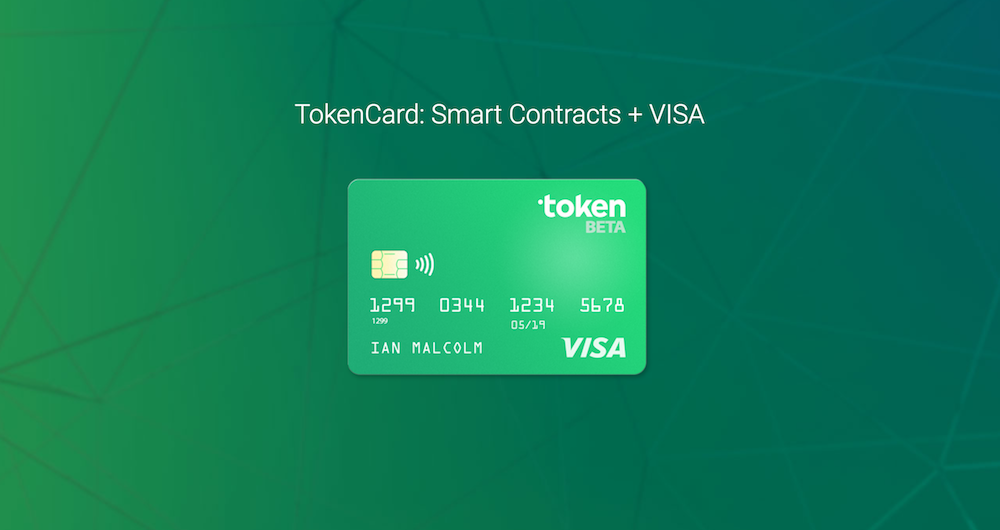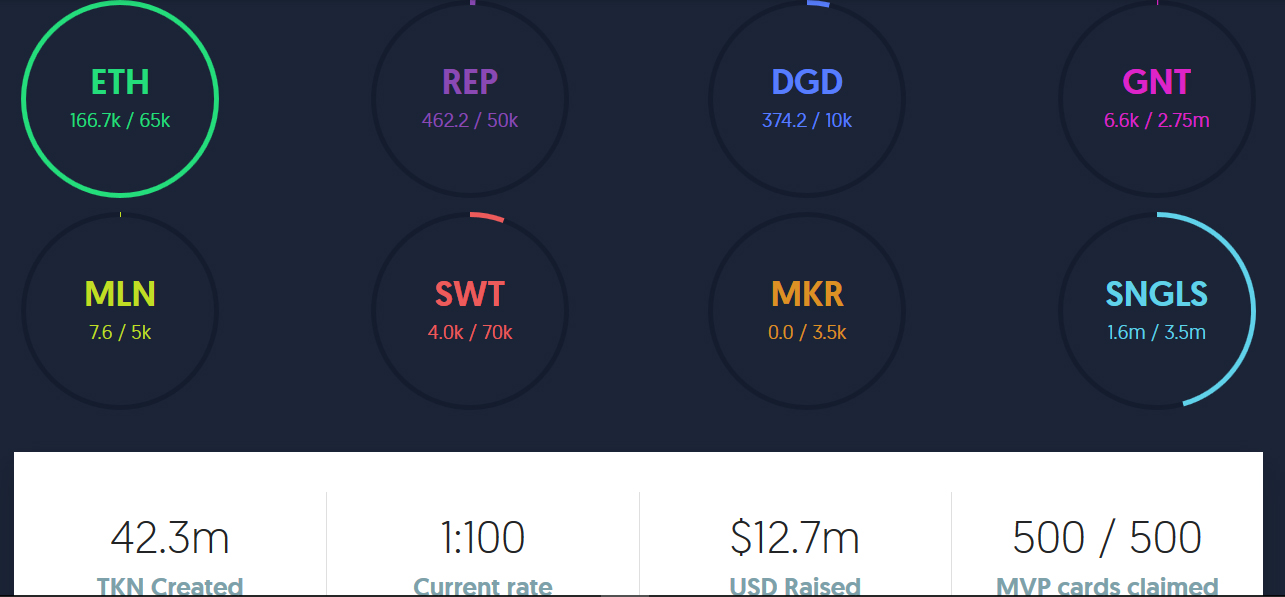Ethereum Based Debit Card ‘TokenCard’ ICO Raises $12.7 Million in 30 Minutes

TokenCard, which according to their website aims to create a smart contract powered debit card, just managed to raise almost $13 million in about 30 minutes through eth itself as well as other ethereum based tokens, such as SingularDTV (SNGLS).
The majority of the funding came through eth, with almost 170,000 sent, valued at around $12,782,000. Some 1.6 million SNGLS tokens were sent with the next biggest being 6,600 Golem (GNT) tokens, which in combination are valued at around half a million dollars.

So the figures sort of don’t add up, but they could be using a different price for eth. The token sale, however, has encountered problems. An ethereum proponent and ICO participant found out that those who sent SNGLS received far more tokens than those who sent eth, paying a dollar equivalent of $0.0699 per token while ethers paid in a range of $0.52 to $0.78.
A representative from Monolith Studio, which is to create the TokenCard, stated “all is fine” before adding that “on a scale for [sic] 1 to 10 in terms of seriousness; this is a 1.” Many would disagree, giving blatant unfairness in the token sale process, even if unintentional, at least a 2, with some probably giving it a 7 or maybe even 8 because such huge discrepancy sounds fairly serious.
Peter Vessenes, whose position in the project is simply described on their website as “Technology,” publicly stated that they were “sleep-deprived,” so we have to wait “the next 12 hours.” Hopefully, he or they does tell us exactly how this “error” occurred. It appears fairly peculiar that only one token was affected (if that is indeed the case).
Anyway, they say “looks like remediation is going to be necessary,” after revealing there had been another error as “not all of the ERC20 [eth and/or tokens] transfers were credited.” I suppose that’s a 1 too.
Many, however, would say it’s not a good start. It actually seems like a pretty bad start, but what is this project exactly? It’s co-founded by Mel Gelderman, who doesn’t list any educational background on LinkedIn and whose only previous experience seems to have been as a “Blockchain Specialist” at BitcoinSkins. Where sorry? Yeah, never heard of it either.
Their whitepaper appears light on technical details, but let me first explain the high-level concept. They want to create a debit card that operates through your own ethereum smart contract (therefore allowing you to add spending limits etc), but can somehow pay any merchant whether they accept eth or not.
It can be used with other tokens as well, not just eth, for the privilege of a 1.5% fee. The holders of the Token™ (that’s not us, their website has a trademark symbol on Token) receive 1% of this fee while not having to pay any fee themselves.
But how does all of this work? How are we getting this smart contract into a Visa debit card? How is all this being connected to the blockchain? How is it converted to dollars? Unless my research has been shabby – and it happens, no one is perfect – none of those questions are answered, except for the last one. The whitepaper says:
“For certain assets with enough liquidity, we can provide a simple fiat to crypto exchange service. This is a relatively simple financial service to offer, however it may require regulatory approval and adequate fraud mitigation…”
That regulatory approval might mean FinCen registration as well as probably licensing in some 50 US states which isn’t quite that easy or simple if Bitfinex or MT Gox are to tell us anything. But if they do manage it, then you’d sort of be selling your eth or your tokens to them at whatever price they ask and they send the dollars to the merchant.
It’s a service other projects are trying through phone apps that are internet-enabled with other projects trying a similar service on top of the many failed bitcoin debit card attempts. But how we can get a smart contract on an internetless card is not very clear.
The idea is nice though if it can all work, the regulatory hoops are passed if everyone can be assured we won’t have any SGLS style “errors” when they convert our eth to dollars, if the fees were a bit lower and if they get rid of that TM on a widely used word in this space. It’s like saying computer™ or software™.
Featured image from TokenCard.